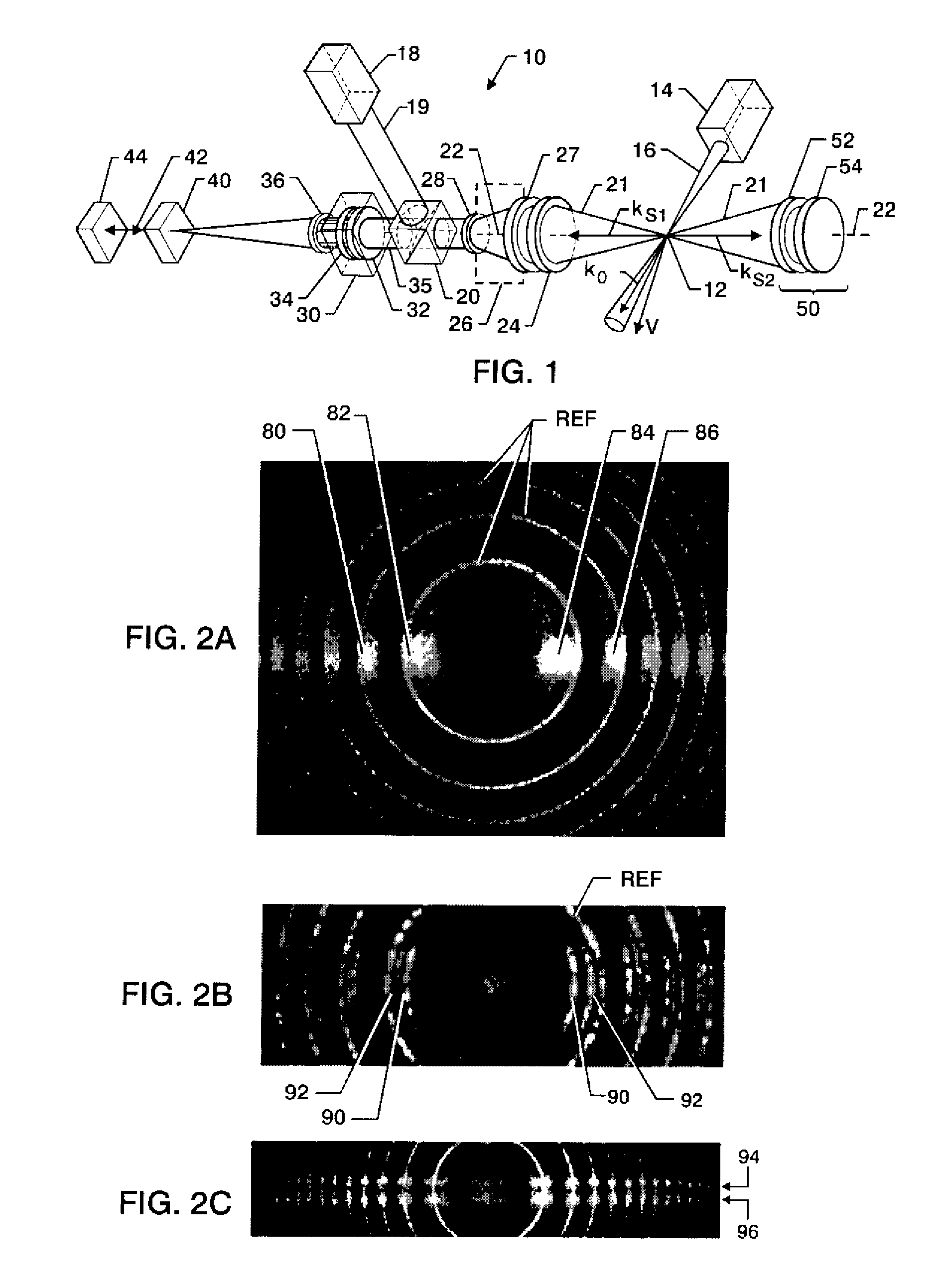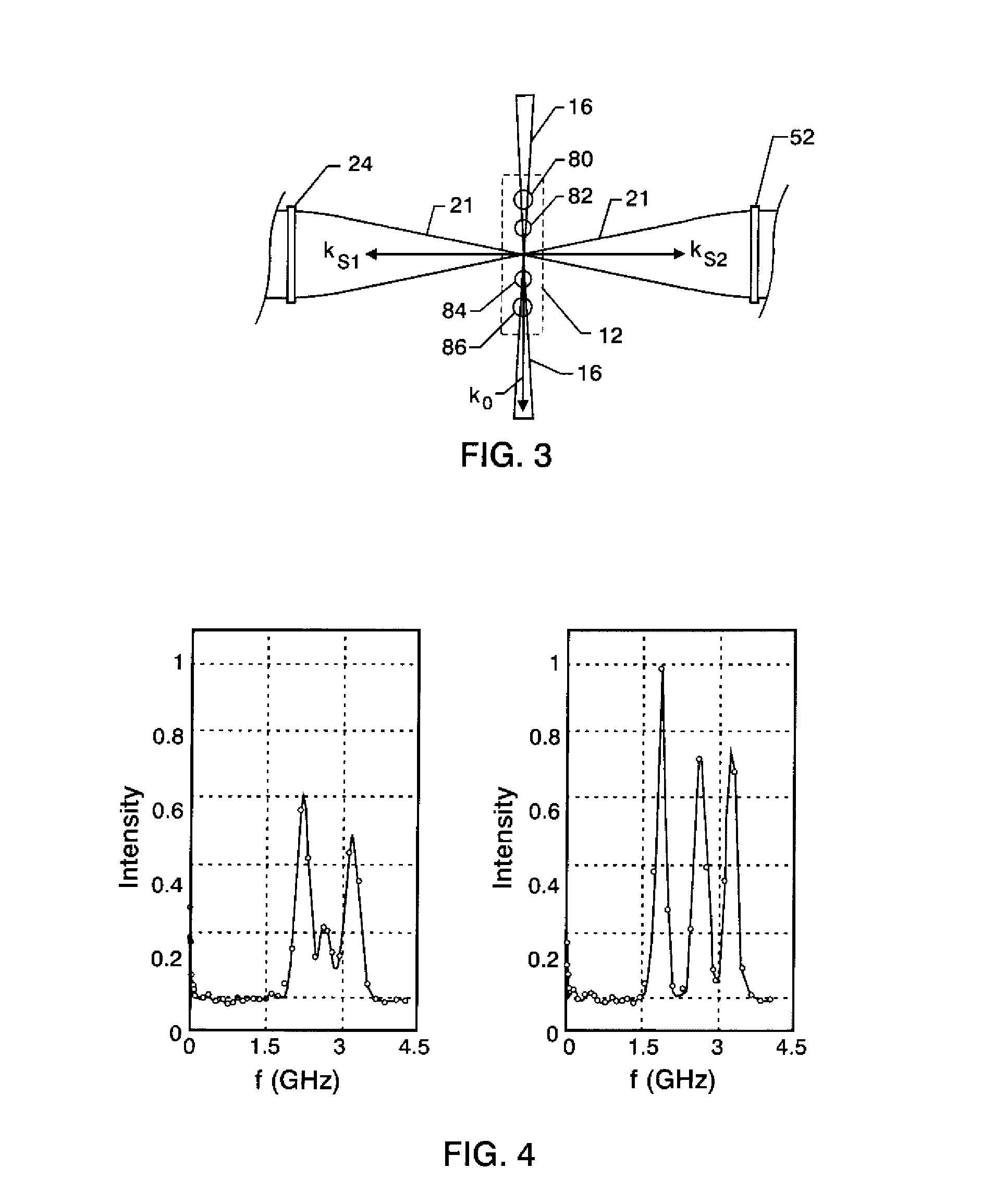Interferometric Rayleigh Scattering Measurement System
a measurement system and interferometer technology, applied in the field of interferometric rayleigh scattering measurement system, can solve the problems of undesirable flow modification, inability to measure velocity in all environments, and inability to achieve the effect of increasing reliability and versatility, increasing accuracy and applicability, and reducing costs
- Summary
- Abstract
- Description
- Claims
- Application Information
AI Technical Summary
Benefits of technology
Problems solved by technology
Method used
Image
Examples
example
[0043]Referring to FIG. 2B, in order to compute the flow velocity, five rows were averaged through the center of the interferogram as described in the technical paper entitled “Intracavity Rayleigh-Mie Scattering For Multipoint, Two-Component Velocity Measurement,” by Bivolaru et al., Optics Letters, Vol. 31, No. 11, pp. 1645-1647, June, 2006, the disclosure of which article is herein incorporated by reference as if set forth in its entirety. This data was converted from the spatial domain (pixels) to the frequency domain. Two spectra processed in this way are shown in FIG. 4. Specifically, FIG. 4 shows spectra of Mie scattering from water clusters generated naturally in the flow.
[0044]Gaussian peaks were fitted to the five-row average slice to determine with sub-pixel resolution the location of the peaks and frequency. The low frequency peak, slightly above 3.0 GHz in the spectrum, is the reference laser frequency used to identify the zero-velocity fringe location. The first peak i...
PUM
 Login to View More
Login to View More Abstract
Description
Claims
Application Information
 Login to View More
Login to View More - R&D
- Intellectual Property
- Life Sciences
- Materials
- Tech Scout
- Unparalleled Data Quality
- Higher Quality Content
- 60% Fewer Hallucinations
Browse by: Latest US Patents, China's latest patents, Technical Efficacy Thesaurus, Application Domain, Technology Topic, Popular Technical Reports.
© 2025 PatSnap. All rights reserved.Legal|Privacy policy|Modern Slavery Act Transparency Statement|Sitemap|About US| Contact US: help@patsnap.com



